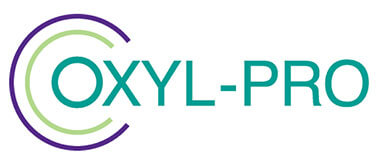Disinfection in
Livestock Farming

Farmers need to take the right precautions when handling livestock, and this includes using a livestock disinfectant regularly to help prevent the spread of diseases and infections.
According to Defra research, costs to farming from disease in livestock are considerable. Mastitis is second only to lameness as the highest animal welfare loss. Direct disease costs associated with it are £180 million a year.
Use of an effective livestock disinfectant can protect animals during birth, and when breeding and feeding.
Disinfection in livestock farming is one part of controlling disease, along with other actions including veterinary investigations, treatments and quarantine.
What Precautions Should You Take When Handling Livestock?
Biosecurity should be a major concern when handling livestock. This is the prevention of disease-causing agents entering or leaving any place where there is a potential risk to farm animals.
This should include regular procedures that will support the safety of livestock:
- Make sure buildings are in a good state of repair and clear of rodents
- Check buildings for rain or storm damage, and prevent any standing water gathering near water systems
- Clean water troughs, buckets and cups routinely and sanitise nursing bottles and buckets after each feed
- Store feed materials off floors, and clean storage areas around batch feed
- Keep barrels and bins covered
- Provide a clean environment for livestock birthing
- Clean all manure from pens and disinfect walls and floors
- Change bedding in pens before new animals use them
- Provide good cleaning facilities for farm employees, and make sure they wash their hands thoroughly before milking, or working with sick animals
- Keep sick animals segregated, and only use specific sick pens for them.
- Use disposable gloves and boots to help prevent exposure to disease
- Wash farm work clothing diligently and regularly.
Biosecurity should also involve the systematic disinfection of farm equipment and machinery, farm facilities, animal pens, water troughs and feed storage. This is in addition to regular and thorough cleaning.
The disinfection process should apply to:
- Bedding, sidewalls and gates of pens, barns, stables and hutches
- Walls and floors of pens, barns, stables and hutches
- Buckets and nursing bottles
- Water troughs and tanks
- Farm machinery and equipment.
What Chemicals are Safe for Livestock Cleaning?
Defra maintains a list of disinfectants it has approved for use in England, Scotland and Wales.
Because there are multiple potential sources of contamination on farms, there is no single chemical or method that will deal with all these possible sources.
This means farmers must first be clear what diseases and infections they are seeking to protect livestock from, or prevent occurring.
They must also consider to what degree people working on the farm can transmit pathogens to animals, and what precautions this requires.
Microorganisms will vary in how sensitive they are to different disinfectants. Bacterial spores, for example, are the most resistant microorganisms. Some microorganisms can survive outside their hosts for longer too.
Where microorganisms can survive for several weeks, the on-farm disinfectant must be able to remove any surviving bacteria from surfaces which animals could come into contact with.
For disinfecting animal housing areas such as cattle pens, farmers should use specially formulated surface disinfectants with bactericidal, fungicidal, viricidal and mycobactericidal properties.
Why is it Important to Maintain High Levels of Hygiene on Farms?
Maintaining high levels of hygiene on farms helps prevent the spread of infections and diseases in livestock.
The best way is to take a systematic approach, involving the regular cleaning and disinfecting of surfaces, animal housing, animal feed and water supplies.
While some pathogens will require very specific treatments, it also makes sense for farmers to choose disinfectants that will be as widely effective as possible.
A versatile disinfectant will serve several biosecurity functions at once, such as surface disinfection and water sanitation.
What Methods of Prevention Will Help Avoid Diseases?
Common diseases, conditions and infections pose an ongoing threat to the wellbeing of livestock, and the profitability of farms.
Therefore, methods that farmers use to protect livestock and prevent disease should be routine but diligent.
Basic precautions include protecting any water sources on the farm from animal carcasses and manure, and regular, scheduled cleaning and disinfection of appropriate farm surfaces, areas and equipment.
Farmers should put processes in place that reinforce biosecurity (see above) and apply an effective, Defra-approved livestock disinfectant.
Why Choose Oxyl-Pro?
Oxyl-Pro is a multi-purpose disinfectant and farm sanitiser. It can help keep animal housing free from harmful bacteria, and it can provide clean and safe drinking water for livestock.
It is 99.999% effective against campylobacter, salmonella and E-coli.
Oxyl-pro is has no colour, taste or smell when used at its recommended dosages.
When you apply it to drinking water supplies, Oxyl-Pro prevents the build-up of biofilm within supply pipes, and has a mild but long-lasting effect.
Oxyl-Pro is also highly effective as a surface disinfectant, ideal for applying to farm surfaces, machinery, equipment and tools. It will not affect stainless steel and is generally non-corrosive when in contact with most metals.
For more information about Oxyl-Pro for farms and livestock, please complete our contact form, call us on +44 1606 851 782, or email enquiries@oxylpro.com
